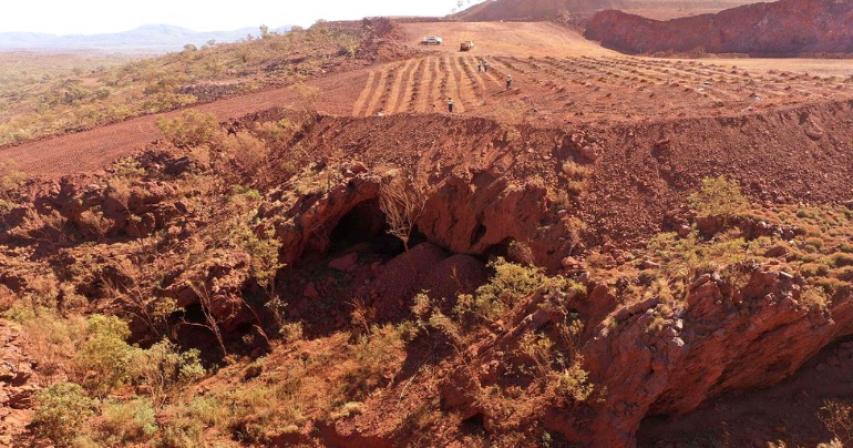Rio Tinto chief to step down over cave destruction
- 4 years ago

Rio Tinto's chairman and a director will step down over the destruction of two ancient Aboriginal rock shelters.
The 46,000-year-old Juukan Gorge rock shelters were destroyed for an iron ore mine in Western Australia last year.
A public and investor backlash led to the resignation of then-chief executive Jean-Sebastien Jacques and two deputies.
However, last month the mining giant's remuneration committee handed large payouts to all three executives.
Simon Thompson will step down as chairman after next year's annual general meetings, while non-executive director Michael L'Estrange will retire from the board after this year's meetings.
"I am ultimately accountable for the failings that led to this tragic event," Mr Thompson said in the statement on Wednesday.
Mr Thompson came under continued pressure last month after the region's elders accused him of breaking a personal promise.
Significant archaeological site
The caves - seen as one of Australia's most significant archaeological research sites - had shown evidence of continuous human habitation dating back 46,000 years.
Artefacts found at the caves include a 28,000-year-old animal bone tool and a 4,000-year-old belt made of plaited human hair.
DNA testing had directly linked it to the Puutu Kunti Kurrama and Pinikura (PKKP) people - the traditional owners of the land.
The shelters sat above about eight million tonnes of high-grade iron ore, with an estimated value of £75m (A$132m; $96m).
In December, a parliamentary inquiry ordered Rio Tinto to rebuild the cave system, and blasted their destruction as "inexcusable".
In its report - titled Never Again - the inquiry concluded Rio Tinto "knew the value of what they were destroying but blew it up anyway".
It made seven recommendations, including a moratorium on all mining in the local area, and changes to heritage protection laws.
Source: BBC
Comments